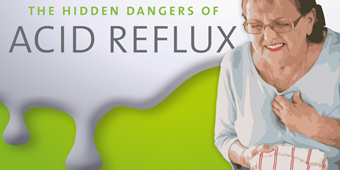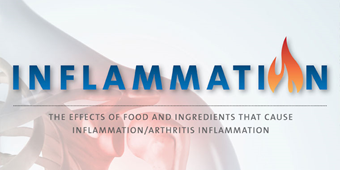Are Coffee And Caffeine Good For You?

Answer a few questions and we'll provide you with a list of primary care providers that best fit your needs.
Whether percolated at home, guzzled on your way to work, or sipped at a sidewalk café, coffee is an important part of life for many Americans. The Food and Drug Administration (FDA) estimates that 80 percent of Americans ingest coffee or another form of caffeine every day.
But the question persists: Can all that caffeine possibly be good for you? The answer depends on a number of variables.
For healthy individuals, the FDA indicates, 400 milligrams of caffeine a day – that’s four or five 8-ounce cups of coffee – is generally considered safe.
But everyone is different. People vary by how sensitive they are to caffeine, which is a drug, and how quickly their bodies metabolize or break it down.
For the average person, it can take three to five hours to eliminate half of the drug. How fast your body eliminates the caffeine depends on how much caffeine you take in and how quickly your body processes it.
Pregnant women are typically above average in how long it takes to break down caffeine. It can take pregnant women a little over eight hours, even up to 16 hours to eliminate half the caffeine they take in. For babies it can take 65 to 130 hours.
Talk to your health care provider about whether you should limit caffeine consumption if you’re:
- Pregnant
- Trying to become pregnant
- Breastfeeding
- Are concerned about another condition or medication you’re taking
Although the FDA has not set a caffeine limit for children, the American Academy of Pediatrics discourages children and adolescents from consuming caffeine and other stimulants.
Just remember – like all good things, coffee and caffeine are best enjoyed in moderation.
First, the Bad News
Caffeine is a stimulant. Side effects of consuming caffeine include:
- Sleeplessness
- Nervousness
- Jitters
- Anxiousness
- Rapid heart rate
- Upset stomach
- Nausea
- Headache
- Dehydration
Some medications react poorly with caffeine. It dulls the effects of:
- Strattera, which is prescribed for ADHD
- Wellbutrin® or bupropion for depression
- Cipro (antibiotic), clozapine (antipsychotic), and Zanaflex® (relieves muscle spasms)
- Some thyroid and heartburn medications
- Some beta-blocker heart medications. Beta blockers slow your heart rate, while caffeine increases how fast your heart beats. Caffeine can neutralize may be neutralizing the medication’s effects.
Coffee can also affect your health by:
- Raising blood sugar levels (on a short-term basis), making it harder for those with type 2 diabetes to manage their insulin
- Contributing to osteoporosis (bone loss) in postmenopausal women, especially if they drink more than three cups (300 mg of caffeine) a day, and don’t get enough calcium in their diet
- Worsening acid reflux or heartburn
- Leading to caffeine addiction (making it hard to break the coffee habit)
On the Other Hand: The Good News
Several studies conducted by some of the nation’s leading medical researchers have found that biologically active compounds in coffee (including antioxidants) offer some health benefits. They may reduce the occurrence of a number of diseases and conditions, including:
- Type 2 diabetes
- Cardiovascular conditions
- Neurodegenerative diseases (like Parkinson’s, Alzheimer’s, Huntington’s, and ALS)
- Chronic liver diseases
- Gallstones
- Cavities
- Suicide
In addition, there’s no scientific evidence indicating that coffee is linked to:
- Cancer (any type)
- Ulcers
- Inflammatory bowel disease
- Fibrocystic breast disease (benign fibrous lumps)
- Birth defects
- Infertility
Even more heartening is a study by the National Cancer Institute and the American Association of Retired Persons (AARP) that followed 400,000 men and women ages 50 to 71 for more than 10 years. It found that those who regularly drank coffee (either decaf or regular) had a lower risk of overall death than did nondrinkers. In particular, coffee drinkers were less likely to die from heart disease, respiratory disease, stroke, injuries and accidents, diabetes, and infections, the report said.
Hidden Sources of Caffeine
It’s not just coffee that contains caffeine. The FDA doesn’t require food and drink labels to indicate how much caffeine is included, but expect to find caffeine in:
- Chocolate
- Tea
- Coffee-flavored ice cream and candy
- “Power snacks” like cookies, brownies, granola, and energy bars
- Energy drinks
- Soda
Nearly all products that are advertised to increase your energy level include caffeine.
So What’s a Java Lover To Do?
Everyone’s body metabolizes (breaks down) caffeine differently; some react more quickly and strongly to caffeine than others. Researchers and physicians recommend:
- Limiting your caffeine intake to no more than three to four cups of coffee a day, and stopping by early to mid-afternoon to help ensure a good night’s sleep
- Slowly weaning yourself off coffee if you decide that you want to quit the habit. Withdrawing from caffeine isn’t dangerous, but it can result in headaches, fatigue, and mental fog.
- Limiting or avoiding caffeine if you’re pregnant
- Skipping caffeine altogether if you suffer from:
- Jitters, nervousness, trembling, irritability, or sleeplessness
- Migraine headaches
- Heartburn and peptic ulcers
- Heart palpitations, arrhythmias, and seizures
- Anxiety or panic attacks
If you’re relatively healthy, the biggest take-away from all these studies is that coffee and caffeine aren’t terribly harmful, and may even provide some health benefits. Just remember – like all good things, coffee and caffeine are best enjoyed in moderation.
If you have any concerns about caffeine, be sure to contact your health care provider.
Answer a few questions and we'll provide you with a list of primary care providers that best fit your needs.
Source: Harvard School of Public Health; Food and Drug Administration; AARP; National Cancer Institute; Scientific American; National Coffee Association




